 Expansion sometimes happens rapidly, including in the organic sector. Organto Foods is proof of that - its turnover doubled last year.
Expansion sometimes happens rapidly, including in the organic sector. Organto Foods is proof of that - its turnover doubled last year.
The company also announced its intention to become the global market leader in organic fruit and vegetable sales, concepts, and brand awareness. It has a total fresh products package including potatoes, onions, vegetables, herbs, and tropical, soft, and other fruit. Organto is quite a new company. It was founded in 2016 and is a bit of an oddity.
Rients van der Wal
"We're a publicly-traded Canadian company that currently operates and has activities in Europe," explains co-CEO Rients van der Wal. "That listing means we have an extremely robust corporate structure. And we have a great board of directors with plenty of knowledge and expertise. Many of our people have years of experience at SunOpta, a listed company in organic ingredients which used to own Tradin Organic.”
“We're fortunate to have input from people like Joseph Riz and Jeremy Kendall, who founded and ran SunOpta. Steve Bromley and I run Organto. Steve also spent 15 years at SunOpta's helm. Besides me, there are two more Dutchmen with tons of experience onboard: Joost Verrest, a value creation and marketing specialist, and Gert Jan van Noortwijk, a commodity trading expert. We're a relatively small player in the sector for now. But our human capital has vast know-how which is very useful in achieving rapid growth in a constantly-changing market."
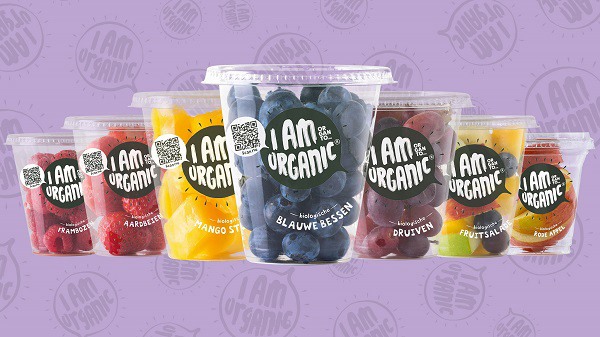
Unwavering belief in the project
Members of the board do not earn a salary but have options in the company. "That means all those people truly believe in the opportunities Organto sees in the market. We want to follow a similar trajectory to SunOpta, a company with roughly the same starting conditions as us. We want to use their growth strategy. SunOpta started in the organic ingredients industry in a very fragmented market. Ours, the fresh and processed organic fruits and vegetables market, is the same. And in 15 years, SunOpta grew from having around €30 million in revenues to €1.5 billion. That was partly due to its own growth, but also through acquisitions. We want to mirror that," says Rients.
Take-overs
A take-over, as with, say, Fresh Organic Choice's Beeorganic, is not just about increasing sales but also about expanding the product range and bringing in know-how. "For a company that wants to expand into offering the entire organic fruit and vegetable range, acquiring a wonderful, specialized company like Beeorganic is a godsend. It takes a tremendous amount of work to develop and market certain products yourself. You have to understand all the product characteristics and get to know your growers well. That can take years. But with a take-over, you immediately have a very solid base from which you can continue to work.”
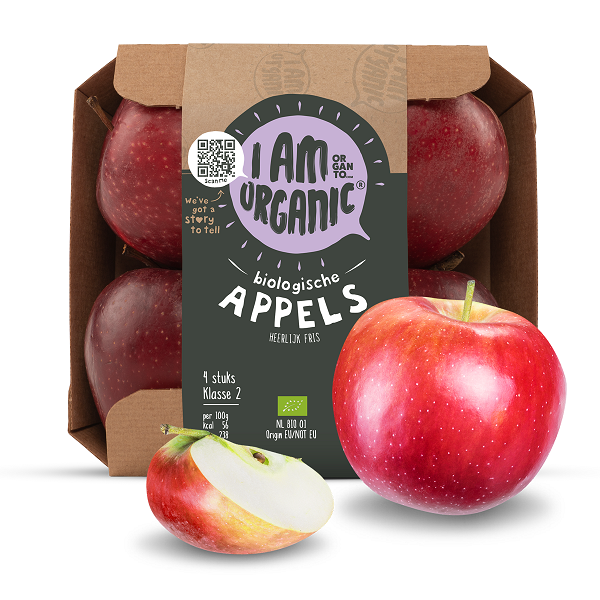
“Beeorganic has been a fantastic business with highly competent management since 2003. They also have two growers in the Dominican Republic, the correct service provision, ripening-wise, a perfectly working strategy, and a consolidated customer base. Still, the single biggest mistake you can make in an acquisition is to think you have everything sorted as soon as you buy a company. SunOpta, for example, has successfully integrated some 45 companies, but not every acquisition started as a clear success. They've learned a lot over the years, and we want to take advantage of that," Rients continues.
Retaining individuality
"We buy businesses because they're successful and profitable, which is exactly why we leave them be, once we've taken them over. We don't make any major changes. We leave the company to keep using its strength and business name as much as possible. It gains a broader base regarding finance, accounting, marketing, and market access. We don't acquire a majority 51% stake; we immediately take 100%. We opt for total synergy between the acquired and parent company and the other subsidiaries. The acquired party gets shares in the parent company, which means everyone is on the same page. Then it doesn't matter which company sells the most bananas because ultimately we're all working toward the same profit and loss."
Avocados
Organto began by importing snow peas from Latin America. Now, it offers mainly year-round organic avocados, ginger, bananas, and herbs on the European market. "We're also developing in the mango and lime areas. And we're very engaged in value-added concepts, such as fresh-cut fruit and to-go variants. But our range includes Dutch apples and pears, too. So, we actually have a fairly wide rage," says Van der Wal.

Avocados make up 30% of the company's revenue. Organto's Hass avocados come from North and southern Africa and Latin America. "We don't work with Kenya or Tanzania much because a product's footprint is vital to us. And East African avocados face some genuine logistical challenges in that area. I am not at all in favor of flying in avocados, for example. And added to that, small-scale cultivation is quite difficult, quality-wise. In Peru and Colombia, on the other hand, we can partner with quite large cultivation companies."
Organic must have a good backstory
The average Dutch retailer's fruit and vegetable assortment is four to six percent organic. "Most sales are in carrots and ginger, a fast-growing product. Many chain partners want to become more organic but have no idea how to do that exactly. The sector generally thinks in product terms, often out of habit and tradition. We're trying to think differently because we believe we're truly missing a link - towards consumers. The supermarket segment is strongly private label driven, so the message about organic products doesn't get across. Even though that, along with product availability, is one of the main drivers behind the organic category's growth," Rients says.
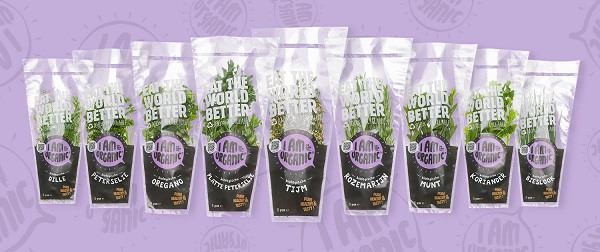
He adds that growth in the organic segment needs brand-driven management and backstory around the product, cultivation, and logistics. "The question is: how visible will that be on shelves? In Europe, I have yet to see an organic potato, fruit, or vegetables brand that retailers truly highlight. Large suppliers like Unilever and Procter & Gamble's numerous brands take up all the product categories' shelf space. That's where we want to go with our I AM Organic brand.”
“And when it comes to story building, we're in fantastic communication in our sector, both for conventional and organic; only, it's often B2B communication. Still, we'll eventually have to get shoppers on board to give products a certain value. The only distinction in stores between organic and conventional avocados is often the price and compostable packaging. But nothing is communicated about the benefits of organic," Rients explains.
Packaging discussion
But how do you tell that story in a time where as little as packaging as possible is the trend? Packaging has usually been the means of communication with consumers. "We think packaging can definitely be used if it genuinely prevents loss. Because a loose, unused product's carbon footprint is much larger than that of a packaged product that is consumed. These are some of the things we need to start explaining to people. Our herbs cannot do without packaging, and a plastic film is very useful for cucumbers too.”
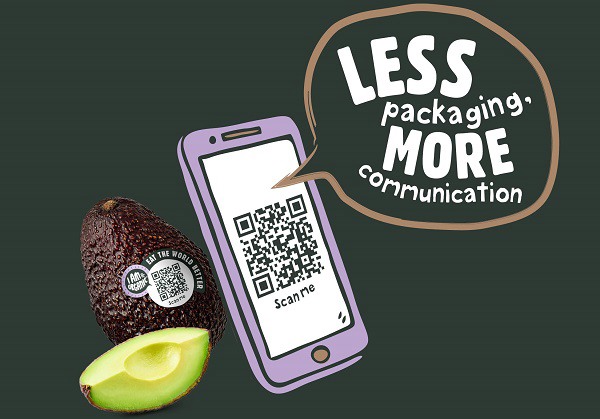
“But if no packaging is needed, we like working with compostable stickers with a QR code. These give shoppers digital access to the product and source-specific information about that specific fruit or vegetable. And so, a whole world opens up: we tell the story of the cultivation, processing, and journey the product makes. And we talk about the product characteristics and all the ways you can eat it. Aspects such as carbon footprint, safety, and health are central to this," continues Rients.
QR code
"A QR code in itself isn't innovative, but the method of storytelling - 100% transparent and inspiring – that we attach to it is. It differs from product and origin. We want to highlight the brand at retailers and increase the QR code's added value even more. That's why we aren't yet jumping on, say, the laser branding bandwagon. That's great technology, but it cannot be used on every product. And I have yet to see the first company to laser a QR code. That QR code is vital to be able to tell our story.”
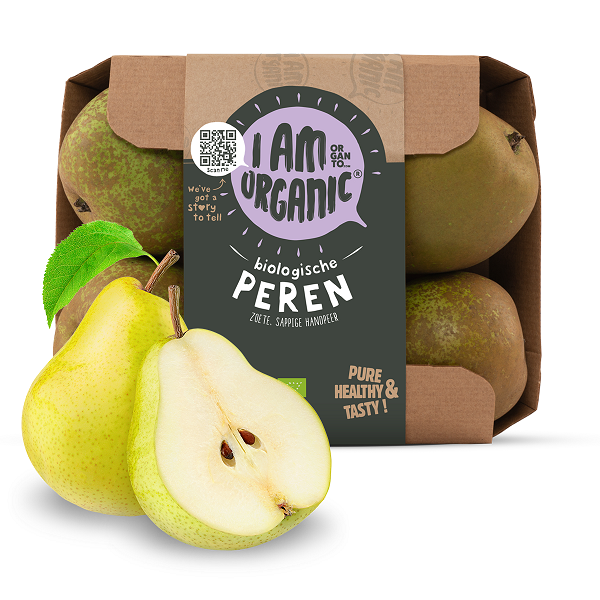
“Most traditional retailers still consider our products and approach a niche. We're, therefore, to put it jokingly, looking for a supermarket chain with the guts to do something different," the co-CEO says. So, Organto uses QR codes on stickers that's colour and size catch your attention. Aside from those, the company also uses geo-targeting (online media campaigns for potential customers who live near a certain point of sale) and old-fashioned in-store advertising for its marketing and communication.
European Green Deal
The EU wants 25% of its agricultural land to be organic by 2030. Organto is delighted with this target, even though the company is primarily strong in importing organic fruit and vegetables. "We still have some misconceptions to dispel about that. For example, an apple freshly picked in the southern hemisphere may have a lower carbon footprint than a European-grown one that's been stored for months. It is crucial to find out such things and to tell consumers. We're currently strongly import-oriented, yet we, naturally, welcome the European Commission's vision. But to make 25% of your acreage organic, 25% of your shelves must also become so.”

“And that's where things can sometimes go awry. Many growers often have to sell their organic fruit as conventional because, at certain times, demand stagnates. And retailers play a hard supply and demand game with their private labels, so prices often drop. And lower prices mean less income for growers, and it becomes even tougher to transition from conventional to organic cultivation. That's why the European Union must make statements like this. You can only realize such targets if the entire chain and politicians support the idea. Setting such a target will certainly get things moving," says Rients.
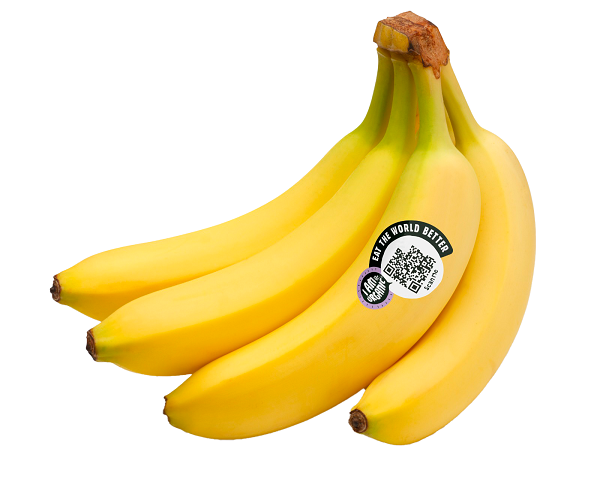
Fairtrade and broad assortment
Organic is an absolute prerequisite of the Organto brand. But Fairtrade certification is something else toward which the company wants to move. "We've already implemented that in some supply chains; in others, we still have to develop this social aspect. And we're not just talking about the cultivation, but all the stages in the chain. And for all products in our ever-widening product range. We supply fresh fruit and vegetables, but also ready-to-eat products such as stews and fruit salads. Our company structure, our preference for expansion through acquisitions, and our demand-oriented business philosophy allows us to take a comprehensive view toward a total organic fruit and vegetable concept. And convenience has a lot to offer in the organic sector."
Challenges
The organic segment offers plenty of opportunities and challenges. "The biggest challenge - and this doesn't only apply to our company - is that the fruit and vegetable market has become inflexible. Seventy percent of all fruit and vegetables are normally sold at retailers. For the remaining 30%, there are the wholesale markets and food service, and those sales channels are a true gauge. They balance supply and demand. During the global pandemic, that segment is too often on and off. Retail is a fantastic channel, but it's very inflexible,” continues Rients.
“Not only because you first have to find a way in, but the involved planning also doesn't allow you to react quickly. If a supermarket wants substantially more product at any given time, you may not have it readily available. Or, if a grower has a good crop, retailers don't want the volumes because they're not in their programs. Supermarkets are an essential chain partner, but there should be more intensive cooperation between retailers and our sector. That would improve flexibility and benefit growers, traders, supermarket chains, and consumers. That's where we need to go."
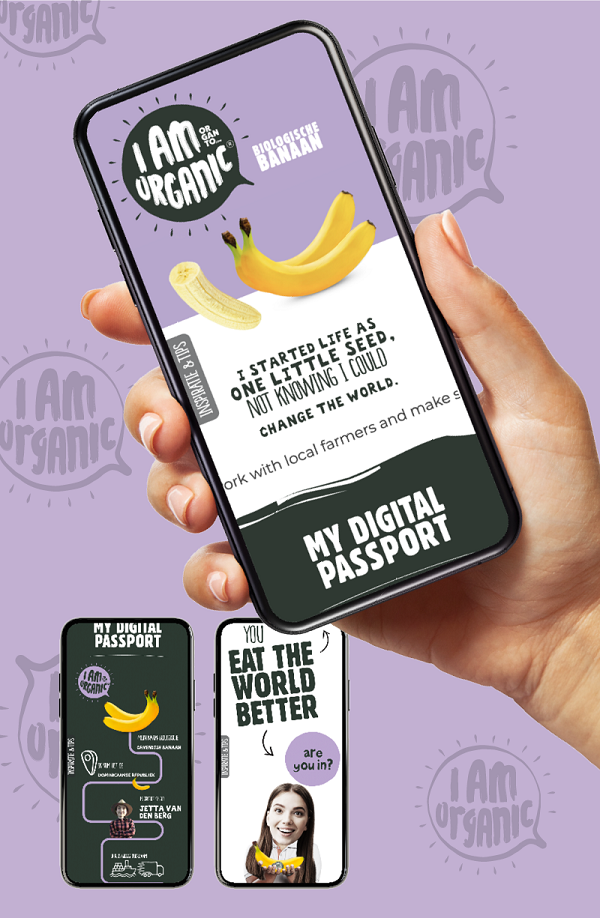
The future
Organto's sales, with strong year-on-year growth, are in the European market, while its listing is in North America. "I expect, thanks to a take-over, we'll soon be active in the North American market. That's very interesting because very few organic specialists are active on both continents. Growers can certainly benefit from the different preferences of these two key markets regarding size, packaging formats, and sales windows. And the markets can learn from each other's retail concepts," Rients concludes, optimistically.

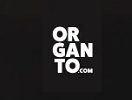 Organto
Organto